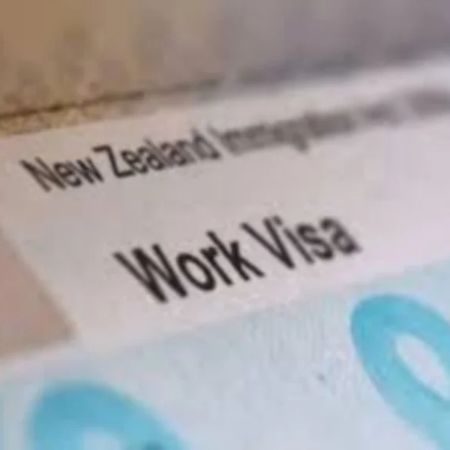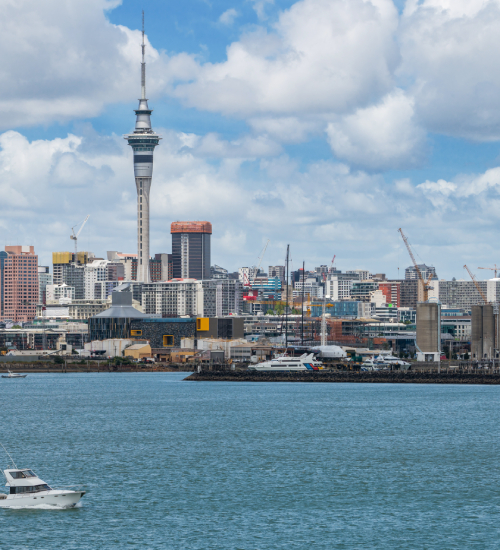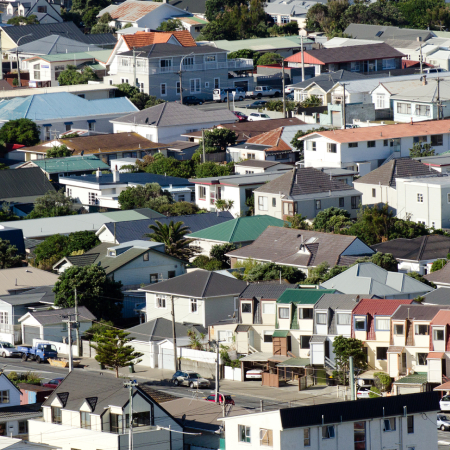Moving to New Zealand: An Expat's Guide
Considering a move to New Zealand? Our moving-to guide will provide you with all the essential information you need to make an informed decision about relocation.
From understanding the New Zealand overview to the cost of living and obtaining New Zealand citizenship, we've got you covered. Let's delve into the details of what it takes to live and thrive in this beautiful country.
From understanding the New Zealand overview to the cost of living and obtaining New Zealand citizenship, we've got you covered. Let's delve into the details of what it takes to live and thrive in this beautiful country.
New Zealand, often referred to as NZ, is a stunning island country known for its breathtaking landscapes, friendly locals, and high quality of life. Whether you are looking to work, study, or retire, New Zealand offers a plethora of opportunities for individuals seeking a fresh start.
The country's diverse culture, thriving economy, and emphasis on work-life balance make it an attractive destination for expatriates from around the world.
Visas for Expats Moving to New Zealand
Planning to move to New Zealand involves understanding the visa requirements and processes. New Zealand offers various types of visas to cater to different purposes of stay. Whether you are looking to work, study, or establish residency in New Zealand, there is a visa option suitable for your needs. It's essential to familiarize yourself with the different types of visas available and their respective criteria to ensure a smooth transition to your new life in New Zealand.
New Zealand offers a range of visa options for those looking to work or study in the country. To work in New Zealand, you must apply for a Work Visa in advance. There are several types of work visas available, including the Accredited Employer Work Visa, Post Study Work Visa, and Skilled Migrant Category Resident Visa, among others.
The fees and processing times for these visas vary, so it's important to check the latest information on the Immigration New Zealand website.
For students, if your course is longer than three months, you must apply for a student visa. After completing your studies, you may be eligible for a Post Study Work Visa, which allows you to stay and work in New Zealand for up to three years, depending on your qualifications.

Work Visa Applying Process
Securing a work visa is a common pathway for individuals looking to live and work in New Zealand temporarily. The work visa process entails meeting certain requirements set by the New Zealand government, such as having a valid job offer from a local employer or possessing skills in demand in the country.
Depending on the nature of your employment and intended duration of stay, you may apply for different work visa categories that allow you to legally work in New Zealand.
Find out more at the official website or speak to one of our immigrant specialists.
Cost of Living in NZ
When considering a move to New Zealand, understanding the cost of living is crucial. The cost of living in New Zealand varies depending on factors such as location, lifestyle choices, and housing preferences.
From groceries to transportation and healthcare services, it's essential to budget accordingly to ensure a comfortable standard of living. By planning ahead and researching the cost of essentials, you can make informed decisions about your move to New Zealand.
The cost of living in New Zealand can vary significantly depending on your lifestyle, location, and personal circumstances. On average, a single person's monthly expenses, excluding rent, range from $815 to $1,000, while a family of four may spend between $2,950 and $3,600 per month.
In cities like Auckland, Wellington, or Queenstown, you might need around $3,000 to $4,000 a month to live comfortably.
Transportation costs, such as petrol, can add up, especially if you travel frequently, with petrol prices around $2.80 per liter. Other expenses to consider include food, utilities, insurance, and entertainment, which can vary based on your consumption and lifestyle choices.
Now let’s break them into categories and have a better grasp on each of them:


Dining Out
On average, you can expect to pay between $NZ25 to $NZ35 for breakfast, $NZ50 to $NZ80 per person plus drinks for dinner, and lunch costs falling somewhere in between. Fine dining mains can be around $40, while cafes may charge around $30, and pubs approximately $25.

Transportation
Transportation costs in New Zealand can also be relatively high, with petrol prices averaging around NZ$2.80 per litre. For a single person, transportation costs, including petrol, can be around NZ$200 per month.

Utilities
Utilities in New Zealand are relatively affordable, with the average monthly cost for basic utilities, such as electricity, heating, cooling, water, garbage, and internet, estimated to be around NZ$239.20 for an apartment (85m2).
Accommodation in New Zealand

Housing and accommodations for expats moving to New Zealand can vary depending on their preferences, budget, and location. The cost of living in New Zealand includes a significant portion for housing and accommodation.
Rent prices can vary widely across the country, with city-center locations typically being more expensive than rural areas.
For example, the average rent for a one-bedroom apartment in the city center is around $1,091.46 USD per month, while a three-bedroom apartment in the city center costs around $1,856.66 USD per month.
Expats can choose from a range of accommodation options, including hostels, holiday parks, and luxury lodges.
For those looking for a longer-term solution, renting a flat or house is common. The rental market in New Zealand includes private lettings and estate agents, with most leases being short or medium-term.
Foreigners can buy property in New Zealand, but there are restrictions and requirements for foreign property investors. These include demonstrating that the property purchase will benefit New Zealand, meeting certain requirements for non-residential property, and holding an NZ bank account for non-residents.
Expatriates can also apply for mortgages in New Zealand, with mortgage rates ranging from 3% to 7% for a 20-year term. The country has a straightforward tiered tax system, with income tax rates varying based on the level of income.
Overall, the housing and accommodation options for expats moving to New Zealand are diverse, with a range of prices and locations to suit different preferences and budgets. It is essential to research and plan carefully to ensure a smooth transition into New Zealand's housing market.
Best places to live in New Zealand for Expat
When considering a move to New Zealand, it's essential to explore the best places to live in this beautiful country to find a location that suits your lifestyle and preferences. Whether you prefer vibrant city life, serene coastal towns, or picturesque countryside, New Zealand offers a diverse range of options for residents seeking a new home.
From bustling urban centers with job opportunities to laid-back communities with a focus on outdoor activities, there is a place for everyone in New Zealand.
| Neighbourhood | The Attractions |
|---|---|
| Auckland | As the largest city in New Zealand, Auckland is a cosmopolitan hub with a vibrant atmosphere and plenty of job opportunities, particularly in the technology sector. Popular neighbourhoods in Auckland include Ponsonby, known for its trendy dining and shopping scene, and Remuera, an affluent suburb with prestigious schools. |
| Wellington | The capital city of New Zealand, Wellington is known for its cool vibe and arts scene, with a population of around 217,000. It is home to two universities and offers a diverse range of neighbourhoods, such as Te Aro, which is popular among students and young professionals. |
| Christchurch | Christchurch is a family-friendly city with a quieter lifestyle compared to Auckland and Wellington. It is known for its strong community feel and offers a range of neighbourhoods, including Merivale, which is popular among families and professionals. |
| Hamilton | Situated only an hour south of Auckland, Hamilton is a budget-friendly option with all the features of a thriving city. It is known for its rapid development and offers affordable housing costs compared to larger cities like Auckland or Wellington. |
| Tauranga | If you are looking for a beach town, Tauranga is a nice option. It is a popular spot for American expats and offers a range of neighbourhoods, including Mount Maunganui, which is known for its beautiful beaches and outdoor activities. |
Healthcare Systems for expats Moving to New Zealand
The healthcare system in New Zealand is a mixed public-private system, offering both free or subsidized healthcare facilities and private healthcare options. Public healthcare is available to all permanent residents and expats on long-stay work visas, with no out-of-pocket fees for public hospital stays.
However, copays do apply for physician visits, prescription drugs, and some hospital discharge aids.
To access public healthcare, expats must register with a general practitioner (GP) and obtain a National Health Index (NHI) number. There is no restriction on which GP an expat can register with, but some doctors may specialize in certain areas of medicine.
Expats can also apply for Primary Health Organization (PHO) membership, which reduces consultation fees and medicine costs.
Private healthcare facilities offer top-quality medical treatments and can provide expedited care with shorter wait times. Private health insurance is available for expats who are not eligible for public healthcare, and it covers out-of-pocket fees, access to private providers, and additional services not covered by the public system.
In case of accidents, the Accident Compensation Corporation (ACC) provides comprehensive, no-fault personal injury coverage for all New Zealand residents and expats, including emergency medical care.
It is essential for expats to understand their eligibility for public and private healthcare services and to consider purchasing private health insurance if necessary. The country has a robust healthcare system that offers both public and private care options to its residents, ensuring high-quality medical treatment for all.

Differences between public and private healthcare in New Zealand
Based on the search results, the key differences between public and private healthcare in New Zealand are:
- Covers citizens, permanent residents, and some work visa holders who have been in NZ for at least 2 years.
- Provides free or subsidized access to public hospitals, clinics, GP visits, prescriptions, and some other services.
- Covers accident-related injuries through the no-fault Accident Compensation Corporation (ACC) scheme.
- May have longer wait times for non-emergency "elective" treatments like surgeries.
- Available to all expats and foreigners, including those not eligible for public healthcare.
- Provides faster access to treatment by allowing patients to skip public hospital waiting lists.
- Offers more choices in healthcare providers and facilities
- Requires paying out-of-pocket or through private health insurance plans.
- Covers services not included in the public system, like adult dental care and optometry.
In summary, the public system provides comprehensive but potentially slower care, while private healthcare offers quicker access and more choice, but at an additional cost.
Expats may need to purchase private insurance to supplement the public system, especially for non-emergency treatments.
Education Options for Expats Moving to New Zealand with Kids
Moving to a new country can be a daunting experience, especially when you have children to consider.
For expats relocating to New Zealand with kids, there are a variety of options to ensure a smooth transition and a successful settlement.
From enrolling in the excellent public school system to exploring private and international school options, families have a range of choices to suit their educational preferences.
Additionally, there are numerous family-friendly communities and activities throughout the country, making New Zealand a welcoming and accommodating destination for expat families.
Let's explore the different education system options available for expats with kids moving to beautiful New Zealand.
- The majority of children in New Zealand attend public schools, which are government-funded and provide free education.
- Public schools follow the national curriculum and offer a high standard of education.
- Expat children may be eligible for domestic student status if at least one parent has citizenship, residency, or a work visa.
- Public schools are usually assigned based on geographic zones, but families can apply for out-of-zone enrolment.
- Private and international schools are available as alternatives to public schools, but they are more expensive.
- Private schools receive some government funding but rely mainly on tuition fees.
- International schools offer curricula from other countries, such as the International Baccalaureate, British, or American systems.
- International schools can help students maintain continuity if they move frequently, but may limit integration into the local community.
- Homeschooling is an option in New Zealand, but parents must apply for an exemption from the Ministry of Education and prove they can provide an education equivalent to a regular school.
- Homeschooling is not very common in New Zealand, but there are support groups and resources available for expat parents.
- Expat children can attend ECE programs, such as kindergartens, from as young as 3 years old.
- ECE is not compulsory but is attended by around 95% of children in New Zealand.
- The government subsidizes up to 20 hours per week of ECE for children aged 3-5, regardless of visa status.

Cultural Differences to be aware of when Moving to NZ as an Expat
When moving to New Zealand as an expat, there are several cultural differences to be aware of to facilitate a smoother transition and integration into the local society.
Some key cultural differences highlighted in the sources include:
- Greeting Customs: In Singapore, it is common to greet with a brief 'Hi' or 'Good morning', while in New Zealand, people typically say 'How are you?' This difference in greetings can impact initial interactions and social norms.
- Physical Contact: Hugging is more common in New Zealand for friends and family, people do not typically hug especially for Asians unless they have picked up the habit overseas. Understanding these differences in physical contact can help expats navigate social interactions.
- Expressiveness: Asians may appear less expressive in meetings and conversations due to cultural influences and educational emphasis on knowledge acquisition. In contrast, Kiwis tend to be more confident and articulate in verbal expressions, which can affect communication styles and dynamics.
- Humour and Banter: Expats from the UK have noted a lack of banter and a perceived lack of interest in forming deeper connections among New Zealanders. Understanding the cultural differences in humour, communication styles, and social interactions can help expats manage expectations and adapt to the local social norms.
- Community and Social Interactions: New Zealanders are known for their welcoming nature and strong sense of community. Expats may find differences in community engagement, social dynamics, and the pace of life compared to their home countries. Building connections and understanding the importance of community in New Zealand can aid in settling in more effectively.
By being aware of these cultural differences and nuances, expats can better navigate social interactions, communication styles, and community engagement in New Zealand, leading to a more successful integration into the local culture and society.
Conclusion
Moving to a new country can be overwhelming and stressful, especially when it comes to all the logistics and paperwork involved in the process.
The fear of the unknown, navigating through visa applications, finding suitable accommodation, and adjusting to a new culture can be daunting for anyone considering a move to New Zealand.
Let us make your move to New Zealand smooth and stress-free. Our expert team will guide you through every step of the process, from visa applications to finding the perfect place to call home.
Embrace this exciting adventure with confidence and start your new chapter in beautiful New Zealand seamlessly with our assistance!

No One Knows Better Than Us.
Get moving with our free moving quote form and let us take care of the rest!